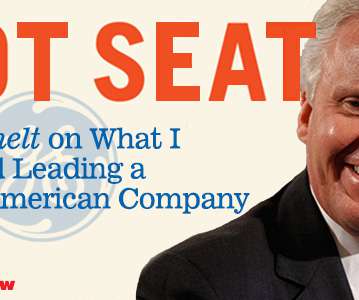Hot Seat: Jeff Immelt at GE
Leading Blog
APRIL 23, 2021
I N SEPTEMBER 2001, Jack Welch was a tough act to follow. Jack Welch led GE to some impressive numbers. GE had internal problems, it was overly reliant on GE Capital, and it was not digitally literate and innovative. And in 2001, the economic tailwinds that Welch enjoyed were about to shift.












Let's personalize your content